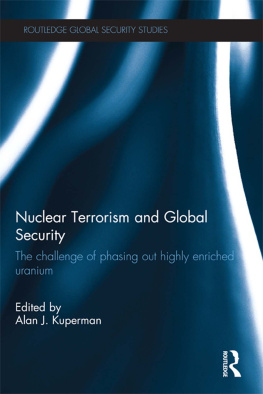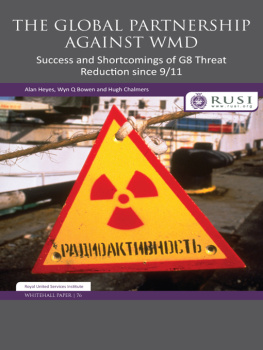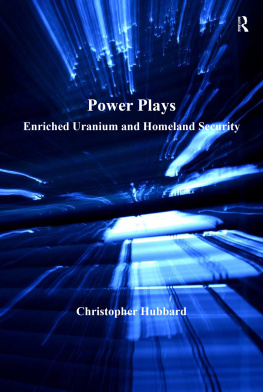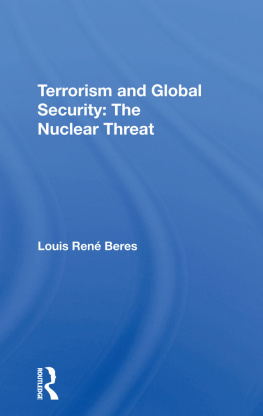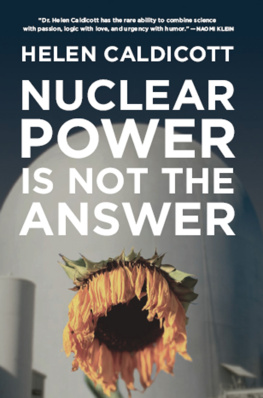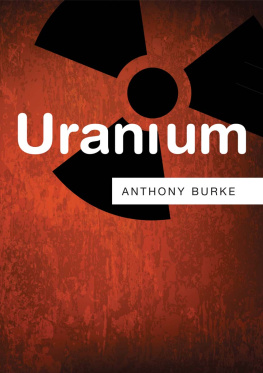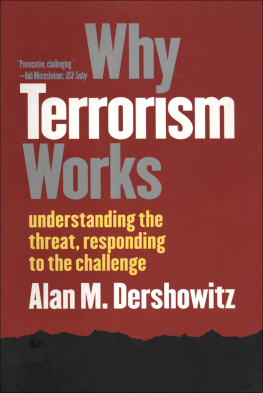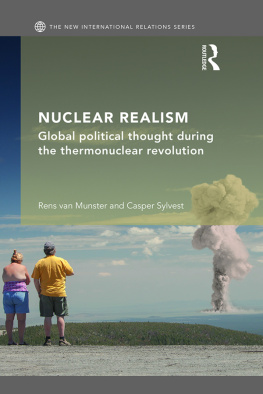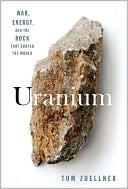Nuclear Terrorism and Global Security
This book examines the prospects and challenges of a global phase-out of highly enriched uranium and the risks of this material otherwise being used by terrorists to make atom bombs.
Terrorist groups, such as Al Qaeda, have demonstrated repeatedly that they seek to acquire nuclear weapons. Unbeknownst even to many security specialists, tons of bomb-grade uranium are trafficked legally each year for ostensibly peaceful purposes. If terrorists obtained even a tiny fraction of this bomb-grade uranium they could potentially construct a nuclear weapon like the one dropped on Hiroshima that killed tens of thousands.
Nuclear experts and policymakers have long known of this danger but so far have taken only marginal steps to address it. This volume begins by highlighting the lessons of past successes where bomb-grade uranium commerce has been eliminated, such as from Argentinas manufacture of medical isotopes. It then explores the major challenges that still lie ahead: for example, Russias continued use of highly enriched uranium (HEU) in dozens of nuclear facilities. Each of the books thirteen case studies offers advice for reducing HEU in a specific sector. These insights are then amalgamated into nine concrete policy recommendations for U.S. and world leaders to promote a global phase-out of bomb-grade uranium.
This book will be of much interest to students of nuclear proliferation, global governance, international relations, and security studies.
Alan J. Kuperman is Associate Professor at the LBJ School of Public Affairs, University of Texas at Austin, where he is also Coordinator of the Nuclear Proliferation Prevention Project (www.nppp.org).
Routledge Global Security Studies
Series Editors: Aaron Karp and Regina Karp
Nuclear Proliferation and International Security
Edited by Morten Bremer Maerli and Sverre Lodgaard
Global Insurgency and the Future of Armed Conflict
Debating fourth-generation warfare
Terry Terriff, Aaron Karp and Regina Karp
Terrorism and Weapons of Mass Destruction
Responding to the challenge
Edited by Ian Bellany
Globalization and WMD Proliferation
Terrorism, transnational networks, and international security
Edited by James A. Russell and Jim J. Wirtz
Power Shifts, Strategy, and War
Declining states and international conflict
Dong Sun Lee
Energy Security and Global Politics
The militarization of resource management
Edited by Daniel Moran and James A. Russell
US Nuclear Weapons Policy after the Cold War
Russians, rogues and domestic division
Nick Ritchie
Security and Post-Conflict Reconstruction
Dealing with fighters in the aftermath of war
Edited Robert Muggah
Network Centric Warfare and Coalition Operations
The new military operating system
Paul T. Mitchell
American Foreign Policy and the Politics of Fear
Threat inflation since 9/11
Edited by A. Trevor Thrall and Jane K. Cramer
Risk, Global Governance and Security
The other war on terror
Yee-Kuang Heng and Kenneth McDonagh
Nuclear Weapons and Cooperative Security in the 21st Century
The new disorder
Stephen J. Cimbala
Political Economy and Grand Strategy
A neoclassical realist view
Mark R. Brawley
Iran and Nuclear Weapons
Protracted conflict and proliferation
Saira Khan
US Strategy in Africa
AFRICOM, terrorism and security challenges
Edited by David J. Francis
Great Powers and Strategic Stability in the 21st Century
Competing visions of world order
Edited by Graeme P. Herd
The Globalisation of NATO
Intervention, security and identity
Veronica M. Kitchen
International Conflict in the Asia-Pacific
Patterns, consequences and management
Jacob Bercovitch and Mikio Oishi
Nuclear Proliferation and International Order
Challenges to the Non-Proliferation Treaty
Edited by Olav Njlstad
Nuclear Disarmament and Non-Proliferation
Towards a nuclear-weapon-free world?
Sverre Lodgaard
Nuclear Energy and Global Governance
Ensuring safety, security and non-proliferation
Trevor Findlay
Unipolarity and World Politics
A theory and its implications
Birthe Hansen
Disarmament Diplomacy and Human Security
Regimes, norms and moral progress in international relations
Denise Garcia
Causes and Consequences of Nuclear Proliferation
Edited by Robert Rauchhaus, Matthew Kroenig and Erik Gartzke
Why Did the United States Invade Iraq?
Edited by Jane K. Cramer and A. Trevor Thrall
Regional Powers and Security Orders
A theoretical framework
Edited by Robert Stewart-Ingersoll and Derrick Frazier
A Perpetual Menace
Nuclear weapons and international order
William Walker
Irans Nuclear Programme
Strategic implications
Joachim Krause
Arms Control and Missile Proliferation in the Middle East
Edited by Bernd Kubbig
The National Politics of Nuclear Power
Economics, security and governance
Benjamin Sovacool and Scott Valentine
Arms Controls in the 21st Century
Between coercion and cooperation
Edited by Oliver Meier and Christopher Daase
Reconceptualising Deterrence
Nudging toward rationality in Middle Eastern rivalries
Elli Lieberman
Psychology, Strategy and Conflict
Perceptions of insecurity in International Relations
Edited by James W. Davis
Nuclear Terrorism and Global Security
The challenge of phasing out highly enriched uranium
Edited by Alan J. Kuperman
Ballistic Missile Defence and US National Security Policy
Normalisation and acceptance after the Cold War
Andrew Futter
First published 2013
by Routledge
2 Park Square, Milton Park, Abingdon, Oxon, OX14 4RN
Simultaneously published in the USA and Canada
by Routledge
711 Third Avenue, New York, NY 10017
Routledge is an imprint of the Taylor & Francis Group,
an informa business
2013 selection and editorial material, Alan J. Kuperman; individual chapters, the contributors
The right of the editor to be identified as the author of the editorial material, and of the authors for their individual chapters, has been asserted in accordance with sections 77 and 78 of the Copyright, Designs and Patents Act 1988.
All rights reserved. No part of this book may be reprinted or reproduced or utilised in any form or by any electronic, mechanical, or other means, now known or hereafter invented, including photocopying and recording, or in any information storage or retrieval system, without permission in writing from the publishers.
Trademark notice: Product or corporate names may be trademarks or registered trademarks, and are used only for identification and explanation without intent to infringe.
British Library Cataloguing in Publication Data
A catalogue record for this book is available from the British Library
Library of Congress Cataloging in Publication Data
Nuclear terrorism and global security : the challenge of phasing out highly enriched uranium / edited by Alan J. Kuperman.

